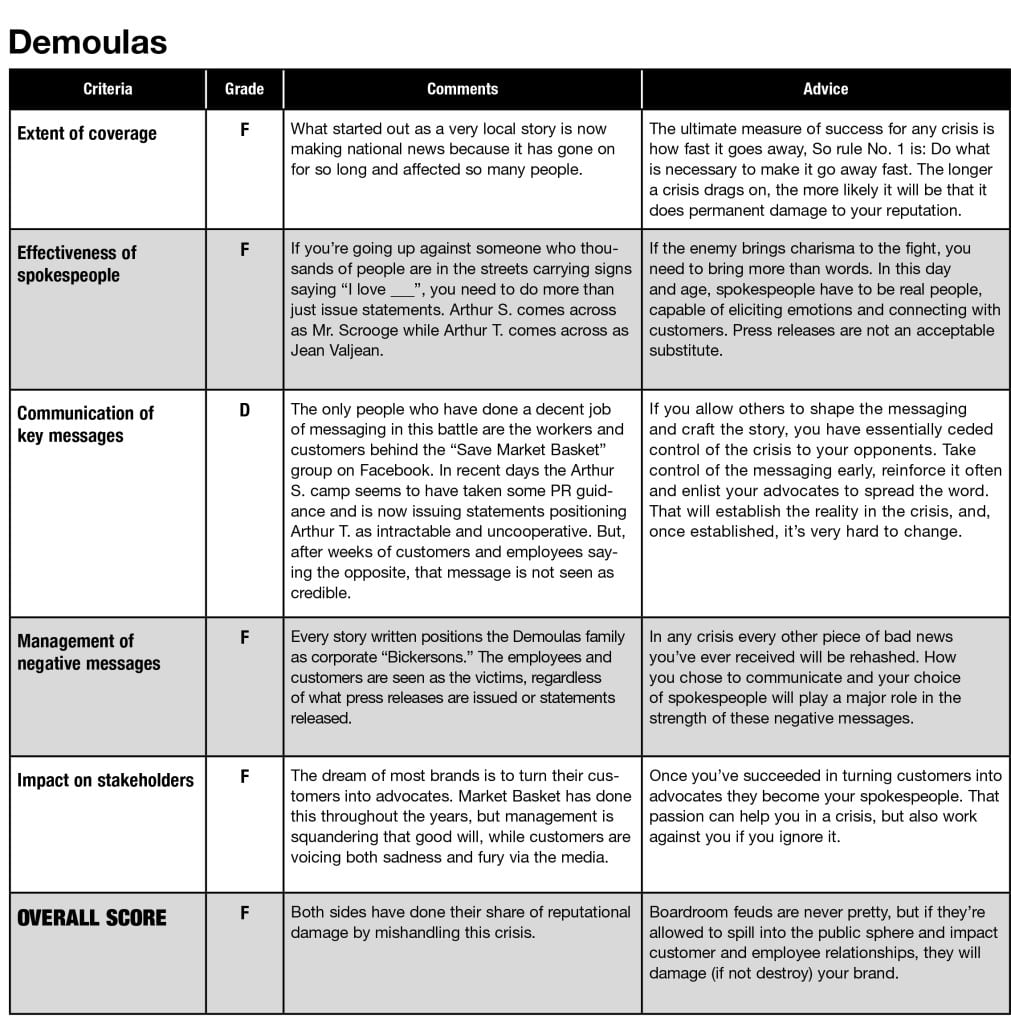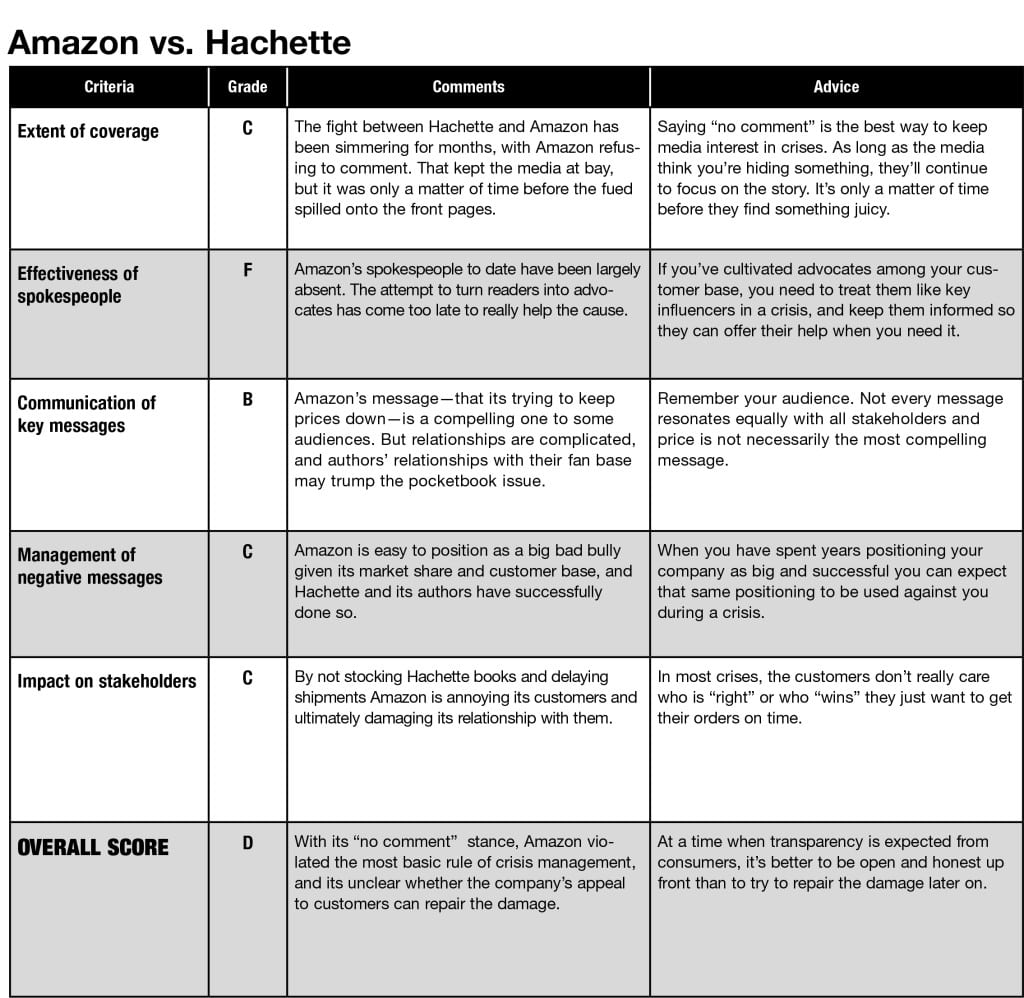
It’s been called the Occupy of grocery stores. But the unfolding saga of DeMoulas Market Basket, a $4 billion dollar New England supermarket chain, is really the PR equivalent of Game of Thrones. It has all the makings of binge-watching-worthy cable TV series. The story involves a kindly father figure CEO vs. an Ebenezer Scrooge-like character; loyal employees refusing to work unless their beloved CEO is brought back and customers supporting the employee’s mission with a boycott that reduced store traffic by 90%.
The feud, which dates back to 1961, eventually made its way to the courts, and in 2013 Arthur S. Demoulas took control of the board, and fired the company’s CEO, his cousin, Arthur T. Demoulas. In response, employees loyal to Arthur T. took the fight public with thousands of employees protesting outside the stores, and customers boycotting for nearly two months.
From a communications perspective, it’s either a PR dream, or a PR nightmare. On one side, you have businessman Arthur S. Demoulas, who, when he was an assistant produce clerk, made an annual salary of $500,000. That doesn’t exactly make him a sympathetic figure. Plus, there are three new independent board members. They could make a “How Not to Deal with the Media” lesson for all future PR execs. The only statements the company released reaffirmed their support for the current management and announced a job fair to replace protesting workers. On the other side is the beloved Arthur T., famous for paying suppliers in cash to save his customers’ money and paying out $43 million in bonuses via the company’s profit sharing plan.
Arthur T. has made an offer to buy out the other side. The opposing side is considering it, just as sales drop, traffic falls (by 90%) and customers and employees continue to vote with their feet.
If nothing else, the Occupy movement has introduced a whole new lexicon to business writing. Reporters now call the fight between Amazon and Hachette the “Occupy of Publishing.” In this case, the 1% is Amazon, which is using both its business clout and its technology to get publisher Hachette to agree to lower the price of its eBooks.
Similar to the Demoulas saga, this too has more than enough drama to go around, including a full-page ad in The New York Times signed by 900 authors calling themselves “Authors United.”
Amazon, for its part, has reduced inventory and slowed delivery on Hachette-published books. Up until very recently, the company has maintained a consistent cone of public silence regarding the dispute. However, in response to the Author’s United letter, Amazon created “Readers United.” It’s also taken the fight public in an effort to sway public opinion.
The first move didn’t work out too well: A long, rambling email to its independent authors that didn’t do the company any favors. This is another interesting case of how long-term relationships can help your brand win when battling a crisis. Hachette has very effectively leveraged its relationships with authors and their readers to explain its point of view and win support.
Amazon could have done the same thing, leveraging its relationship with its customers, but the company waited too long to take action.
CONTACT
Katie Delahaye Paine is CEO of Paine Publishing. She can be reached at [email protected].
This article originally appeared in the August 25, 2014 issue of PR News. Read more subscriber-only content by becoming a PR News subscriber today.


